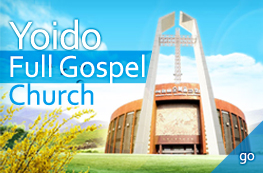"Working towards ‘unity among diversity’ gets us one step closer to reunification. Let us, the South and the North, first share our hearts and learn what we have in common.” (Rev. Eom Gi-ho, chair, CCK Committee for South and North Church Cooperation)
“Reconciliation and unity within our society is the prerequisite for transforming our incomplete liberation into true liberation … Then we can initiate the reunification of South Korea and North Korea.” (Lee Gi-heon, chair, Committee for Reconciliation of the Korean People, Catholic Bishops Conference of Korea)
The National Unification Advisory Council (NUAC) hosted the second “Peaceful reunification conversations in commemoration of the 70th anniversary of national liberation” on May 19 at The Plaza Hotel on Sogong-no, Jung-gu, Seoul. Some 300 persons listened to religious leaders speak on ways to prepare for reunification.
From the Protestant church, both conservative and progressive circles participated, represented by the Christian Council of Korea (CCK) and the National Council of Churches in Korea (NCCK). The conversation was moderated by Rev. Park Jong-wha (third from left) of Kyungdong Church. Rev. Eom Gi-ho (second from left) said, “In particular, the Korean church needs to teach with sincerity, the core values of the Gospel such as reconciliation, forgiveness, alliance building, and brotherly love… Education like this is in line with reunification education for the next generation.” He also emphasized the importance of forming a single religious body to make North Korea policies, and the significance of the ongoing campaign by the Protestant churches to deposit 1% of each church’s annual budget for the creation of a “reunification fund.”
Noh Jung-Sun (fourth from left), professor emeritus of Yonsei University and vice-chair of the NCCK Committee for Reconciliation and Reunification, called for the lifting of the “May 24 Measures,” the South Korean government’s sanctions against North Korea following the sinking of the South Korean Navy ship Cheonan.
Prof. Noh said, “The destinies of South Korea and North Korea are riding on the same boat. Mutual help, giving what we can give to North and receiving what we can receive, is the spirit of our people and the action of the Holy Spirit… During the past 7-8 years, the divided situation of South and North has intensified, and we’re living under circumstances in which war could happen at any time. Religious circles should take the lead in converting this atmosphere.”
In 1994, when the United States was readying plans to attack the nuclear facilities in Yeongbyeon, North Korea, Prof. Noh accompanied the late Dr. Oh Jae-shik, a prominent Korean church ecumenical leader, on a visit to the U.S. State Department, where they persuaded the U.S. to withdraw the plan.
Namgung Seong, director of Won Buddhism’s Gyojeongwon (central executive body) said, “In making reunification-related policies, the government should listen to religious groups that seek reconciliation, cooperation, and spiritual life based on the truth.” Hyeon Gyeong-dae, vice president of NUAC, said, “The reunification process is the holy task of returning religious freedom to North Korean residents. I hope religious circles take the lead in promoting cooperation between South Korea and North Korea, bringing changes in North Korea, and preparing for reunification of the Korean peninsula.”
This NUAC reunification conversations will take place twice more in the latter half of this year.
Reporter Jaechan Park (jeep@kmib.co.kr), with Yeara Ahn-Park (yap@kmib.co.kr)
Photo by senior reporter Kang Min Seok
Click here for the original article in Korean
“Reconciliation, forgiveness, and fraternal love are the base for reunification”
2015-05-22 17:09



